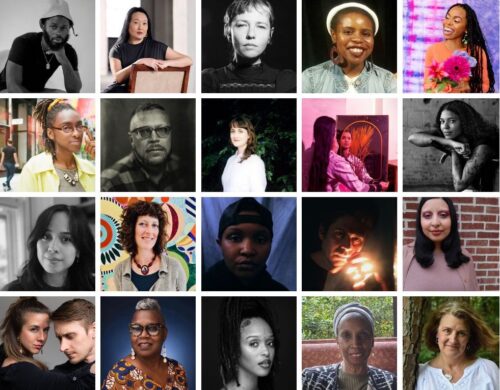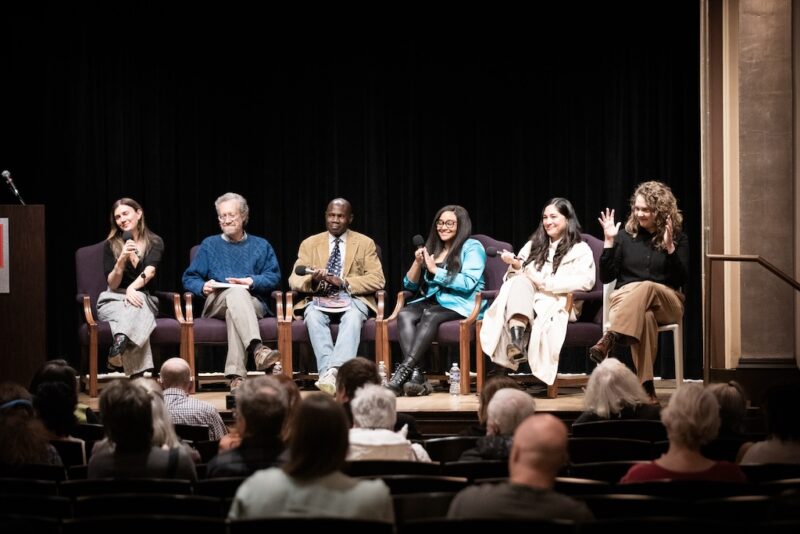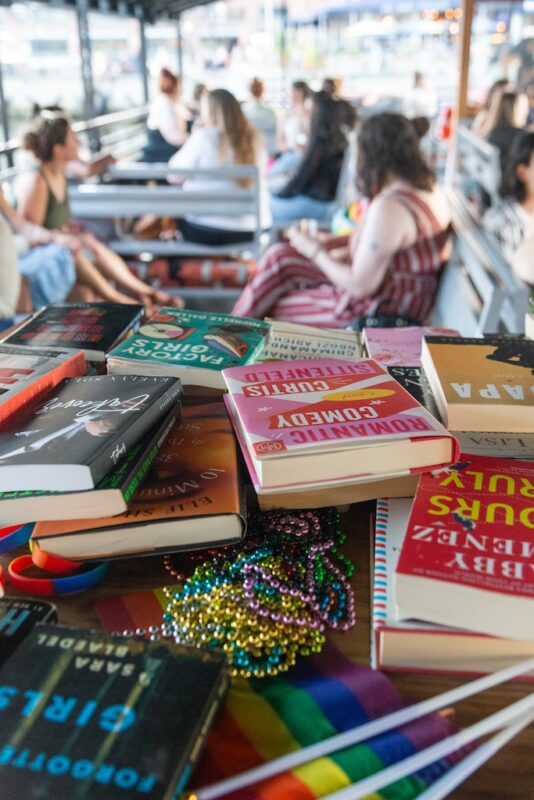The internet was hectic this week. We need a moment to collectively touch grass. Highlights: Jonah Hill and therapy speak, over theorizing love, Keke Palmer, Affirmative Action, conservatives are coming for corporations, the history of crackheads, Tracy Chapman, twitter continues to flounder, loan forgiveness, and the impact of the actors strike on television.
Jezebel: Jonah Hill’s Texts Expose the Problem With ‘Therapy Speak’
Johan Hill’s ex-girlfriend Sarah Brady released a series of text messages between the two over the past week in which Hill is controlling and manipulative. Hill “built a brand around being an evolved man, and who released a Netflix documentary about the transformative power of therapy (starring his own therapist),” and throughout the text messages he weaponized the rhetoric of therapy against his former partner (they broke up sometime in early 2022).
In the text messages, Hill expresses a series of “boundaries” Brady must follow should she want their relationship to continue. The “boundaries” include his “insistence that Brady delete Instagram photos of herself in vaguely revealing clothing (of which Brady had a few—she is, after all, a professional surfer), and stop being friendly—or even surf—with men and ‘wild’ girls.” All of these requirements involve Brady changing her behavior—not Hill—and in effect are rules, not boundaries. Furthermore, Brady did all of these things when Hill chose to be in a relationship with her.
Hill’s weaponization of therapy’s rhetoric is one that is becoming increasingly common (podcasters Queen and J. have been talking about this for years) as “we’ve seen significant progress toward destigmatizing mental health struggles and treatments including therapy.” While therapy is a good thing “this progress has also been impinged by a certain level of hollowness—first, because telling people to go to therapy doesn’t address the underlying social conditions that cause many people’s mental health struggles, and second, because of a fundamental misunderstanding of what therapy is. It’s a tool for self-improvement, not a weapon to moralize our every thought, feeling, and action, while disqualifying everyone else’s.” Additionally, I have experienced people who are in or have gone to therapy weaponize that against people who have not been to therapy or are not currently in treatment, implicating a kind of moral failure. The text messages brought to the surface a discourse that has been bubbling for a long time—I’ve been having conversations with friends for years about the weaponization of therapy and mental health—on how any rhetoric can be used for harm, and that “going to therapy isn’t proof of mental health.”
TikTok: yall are insufferable fr
This week, a video of a woman processing being abandoned by her partner of 7 years has gone viral. I’ve not seen the full video (and could not find it), but stitches of the video have absolutely flooded all platforms.
The first wave of *discourse* was, as @kendramorous describes here, “a bunch of like 20 year-olds being like ‘see this is why you have to decenter men,’” approaching the situation with a complete lack of empathy for what the woman is going through. @kendramorous continues to talk about how people have over intellectualized and over theorized love to the point of people being emotionally unavailable and vulnerable. Thankfully, @kendramorous and others have been posting videos empathetic to the woman’s situation—some even sharing their own stories of andondment—and reminding people to “touch grass.”
The Cut: Keke Palmer Is the Internet’s Sweetheart
If there is one thing that Keke Palmer (and this interview) prove, it is that the internet is Black. Keke Palmer has long been Black famous (I first remember seeing her in Barbershop 2), but over the past year or so (since Jordan Peele’s Nope) she has become famous famous.
This interview is hilarious, but also feels like a sort of introduction for people who are just getting acquainted with Keke. The conversation is fun and light—as always with Keke—but interestingly, it is increasingly feeling like her public persona is getting further from who she is with the people she actually knows. This separation between Lauren and Keke, Keke and Lauren, is something addressed in the interview, and I wonder how it will shift over time.
YouTube: They Overturned Affirmative Action…Let’s Talk About It
Personally, I’m still reeling from the Supreme Court’s decision to overturn affirmative action. Abolitionist movement lawyer Olayemi Olurin and her colleagues give their perspectives on the ruling. Olay goes over the history of affirmative action—and brings up issues I haven’t seen in other analyses of the decision. This is an absolutely fantastic and informative conversation.
The Kansas City Star: Kobach, Bailey threaten legal action against Fortune 100 companies using race in hiring
Predictably, now that affirmative action was overthrown, conservatives are coming for corporations. Conservatives have been very transparent about their agenda, and “Kansas Attorney General Kris Kobach and a coalition of Republican attorneys general in a letter Thursday threatened ‘serious legal consequences’ against Fortune 100 companies that continue to consider race and diversity, equity, and inclusion in their hiring practices.”
In an announcement of the letter Kobach said “all Americans should be judged based on the content of their character, not the color of their skin,” invoking Martin Luther King’s legacy by borrowing language from his famous “I Have a Dream” speech. I can’t.
The Atlantic: What We Meant When We Said Crackhead
Growing up, I always heard the word crackhead used as a slur. I didn’t start critically thinking about the term until undergrad, when I read Dorothy Roberts’ Killing the Black Body. Then, I began questioning the narratives I’d been told from the media, the adults around me, and “the accounts of law-enforcement officials, politicians, and pundits,” the people for whom “the crack epidemic was and continues to be an idea that encapsulates everything bad about the ’80s and ’90s—the poverty, crime, gangs, violence, everything the ghetto represented in America after the civil-rights movement.”
Donovan X. Ramsey grew up towards the end of the crack epidemic. In this essay adopted from his book When Crack Was King: A People’s History of a Misunderstood Era, Ramsey reconciles with the narrative we’ve been taught. Instead, he approaches the epidemic with empathy. After years of research and hundreds of interviews Ramsey learned “that what crack really did was expose every vulnerability of society. The disaffection caused by poverty and powerlessness led to rampant drug abuse in a generation of young people, people who fell right through the holes in our social safety net and social contract.”
Reading this I was also reminded of an episode of the Marsha’s Plate podcast where co-host Diamond Stylz talks about her experience growing up during the crack epidemic.
Washington Post: Tracy Chapman, Luke Combs and the complicated response to ‘Fast Car’
Luke Combs’s cover of Tracy Chapman’s ‘Fast Car’ has dominated the country charts since its release in March. First released in 1988 on her debut album, “Chapman’s ‘Fast Car’ is one of those songs that you just feel in your soul: the lyrics about the yearning to escape, the gentle guitar underlying a feeling of despair but also the hope that something better is coming.”
Combs’s cover’s ascent to No. 1 on the charts makes Chapman the first Black woman to reach that spot. While people are happy about the success, “clouded by the fact that, as a Black queer woman, Chapman, 59, would have almost zero chance of that achievement herself in country music.” The fact that Chapman was only recognized in this way after a straight white man covered her work. Set to “become one of the biggest songs of Combs’s career, there are uneasy and complex emotional responses” grounded in a history of country music erasing Black people from its history even though they are foundational to the genre.
The Atlantic: Zombie Twitter Has Arrived
Twitter is my favorite social media platform. As much as I want to, I can’t help myself from reading about its demise. Ever since Elon Musk began promptly dismantling the app after acquiring it last year, copycat platforms have been popping up. Part of my interest comes from a feeling in the zeitgeist of intense need for something to replace Twitter, whose core idea “short dispatches made from words alone, or nearly so—has facilitated a real culture, many cultures: camaraderie over news events, whether glorious or tragic; shared shame or glee over the plight of today’s “main character”; joy on Black Twitter; advantage-seeking among media personalities parlaying publication into opportunity; even horror at Twitter’s own descent into abuse and conspiracy.”
Arguably everyone who senses this, and the need, should spend less time online, but the announcement of a new app brings excitement and its twin delusion. No matter the app, we “know what happens next: the trolls, the spam, the ads, the Conversations About Politics. Even if those things never materialize, the nagging feeling is still there. It’s not exactly like rebuilding your home on the coastline after it was destroyed by a hurricane, but the vibe is similar: rebirth and hope, but also regret and dread. If only it had all just fallen into the sea.”
On Friday, the U.S. The Department of Education under the Biden-Harris Administration announced that it would “begin notifying more than 804,000 borrowers that they have a total of $39 billion in Federal student loans that will be automatically discharged in the coming weeks.” This comes after the Supreme Court struck down Biden’s plan for loan forgiveness earlier this month.
The administration “[has] also taken steps to help borrowers access affordable payments going forward. The Department recently issued final regulations creating the most affordable payment plan ever—the Saving on a Valuable Education (SAVE) plan. The SAVE plan will cut payments on undergraduate loans in half compared to other IDR plans, ensure that borrowers never see their balance grow as long as they keep up with their required payments, and protect more of a borrower’s income for basic needs.” This is a good start and hopefully there is more to come!
HuffPost: Screen Actors Guild Votes To Strike After Studio Negotiations Crumble
Welp. Looks like we are in for a slew of unscripted TV over the next few years. The Screen Actors Guild joins the writers guild on strike “after negotiations with film and TV studios fell apart” on Thursday. “The guild, known as SAG-AFTRA, had agreed to extend talks with the Alliance of Motion Picture and Television Producers (AMPTP) two weeks past their contract expiration date of June 30. But the two sides failed to reach an agreement in that time, even after federal mediators joined discussions, and the union’s negotiating committee unanimously recommended a strike to its national board.”
Can we please just pay people fair wages? I mean, I enjoy reality TV every now and then, but I do not want to watch it forever. This is getting ridiculous!






